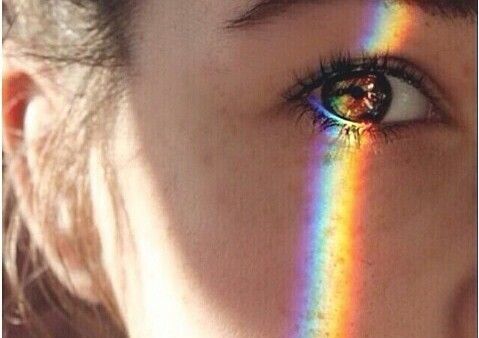Aesthetic Intelligence: The Ability to Sense Beauty

It’s not easy to describe the concept of beauty. Countless thinkers and philosophers have tried with varying degrees of success. Is it an aesthetic standard? A combination of colors and shapes? A feeling? Or is it some spiritual sort of joy? Italian psychotherapist and philosopher Piero Ferrucci proposes a broader understanding of beauty with his theory of aesthetic intelligence.
Violence against animals, child abuse, wars, catastrophes, and the fury of nature… It’s often necessary to see destructive ugliness in order to understand beauty. Furthermore, seeing ugly things lets you understand that beauty isn’t just something superficial, emotional, or ambiguous. Whatever beauty may be, it seems to have an extraordinary power to heal the soul.
Aesthetic intelligence is a way to understand beauty
Beauty is confusing because some people can find an object extremely beautiful while others don’t. Many times, someone finds beauty where another can’t. This is what we mean by “aesthetic intelligence”. It’s seeing beauty where others don’t see anything at all.

Aesthetic intelligence is composed of three main things that define the grade of aesthetic perception. Basically, these are aesthetic range, depth of experience, and the ability to integrate beauty. These three variables exist in different ways and varying degrees inside each one of us.
Aesthetic range
Those who possess a wider aesthetic range can experience beauty in more situations. For example, there are people who just don’t find beauty in music. However, they may be able to find it in poetry, movies, landscapes, home decorations, or the sound of the rain on the roof.
These people are able to perceive beauty in a thousand simple situations from everyday life. This way of understand beauty isn’t common to everyone.
The depth of experience
The perception of beauty also varies from person to person. Experiencing beauty might subtly “touch” someone who can recognize it but not affect them that much. They experience it as something “external” and it doesn’t influence them significantly.
Even so, there are times when beauty permeates your whole being. It takes over and injects feelings that are difficult to explain because they’re so intense. You might not know how to explain how it makes you feel. This is a very intense feeling of joy.
The ability to integrate beauty
The ability to integrate the beauty that you perceive explains why certain beauty “touches” while others “change”. Integrating beauty means that beauty doesn’t only touch you but it also transforms you. In other words, it changes your thought patterns.
Beauty enriches your life
People with a narrower aesthetic range also live in a world that’s more sparse and restricted. Not only that, but they have a less flexible personality. There seems to be a link between falling into this category and a person’s ability to adapt to new environments and circumstances. This means that these people have a harder time managing those changes.
On the contrary, people with a wide aesthetic range develop more curious personalities. They’re more inclined to learn and embrace new ideas and projects. These people also have a great capacity to become amazed and enjoy experiences. They’re a lot more flexible regarding the situations they have to deal with, other people, and themselves. People with a wide aesthetic range have a higher capacity for connecting with others, a higher self-esteem, and a far more intense life spirit.

Surrounding oneself with beauty is something centrally important for many people. In fact, it’s necessary for happiness. In his book, Beauty and the Soul: The Extraordinary Power of Everyday Beauty to Heal Your Life, Piero Ferrucci asserts that depriving yourself of beauty can lead to negative emotions. These include depression, restlessness, inexplicable aggression, and a profound feeling of futility.
All cited sources were thoroughly reviewed by our team to ensure their quality, reliability, currency, and validity. The bibliography of this article was considered reliable and of academic or scientific accuracy.
Moshagen, M., & Thielsch, M. T. (2010). Facets of visual aesthetics. International Journal of Human Computer Studies. http://doi.org/10.1016/j.ijhcs.2010.05.006
This text is provided for informational purposes only and does not replace consultation with a professional. If in doubt, consult your specialist.








